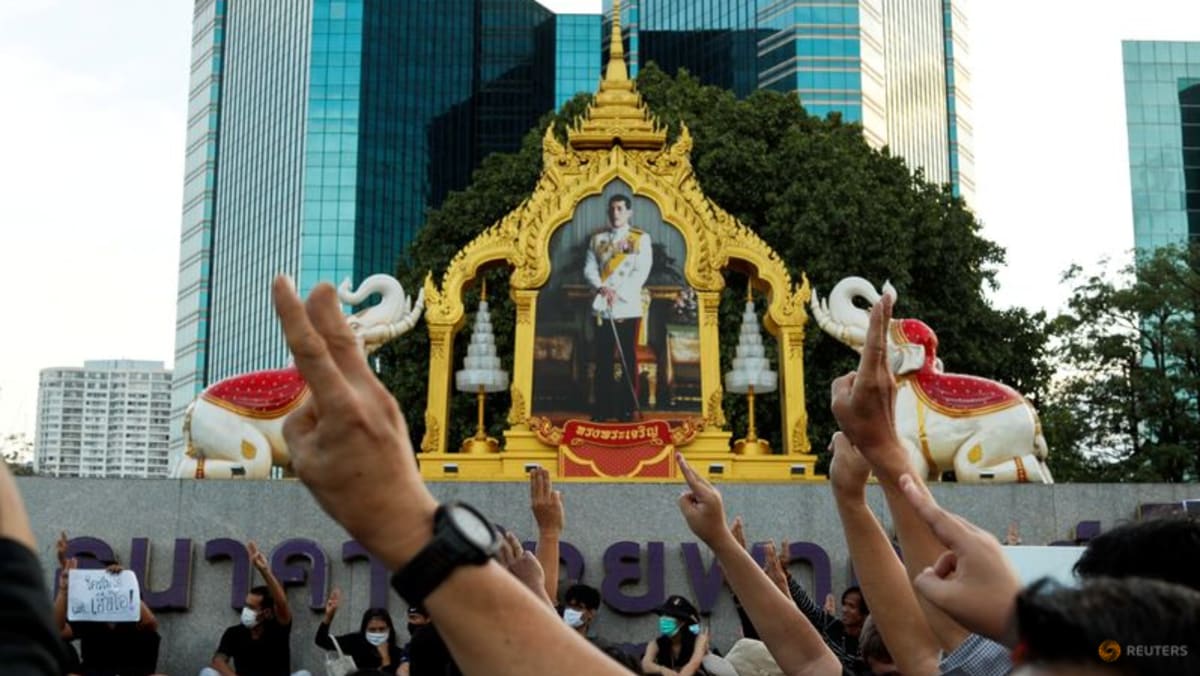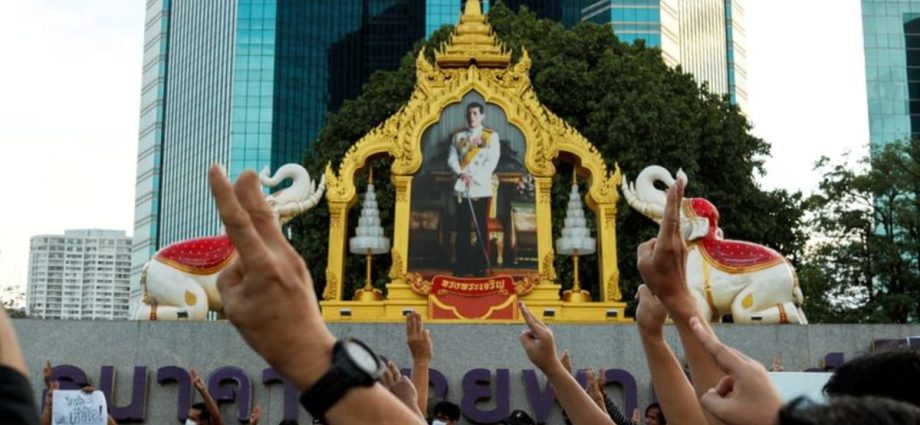
The protests were eventually suppressed, largely by legal action against their leaders, with hundreds arrested and facing criminal cases that are still working their way through courts.
Lookkate said she has 28 criminal cases against her, including two of lese majeste, which would end her parliamentary career if she were to win a seat. Anyone convicted of an offence is disqualified from the legislature.
BIGGEST CHANGE IN DECADES
Analysts say that many of the issues that the youth movement raised are now part of mainstream discourse, including calls to amend the lese majeste laws.
The laws have been used against at least 240 people since the protests began in 2020, according to records compiled by Thai Lawyer for Human Rights.
Dozens of youth activists, like Lookkate, have joined political parties like Move Forward, Pheu Thai and the Thai Sang Thai, either as candidates or workers, said Kanokrat Lertchoosakul, a political scientist at Bangkok’s Chulalongkorn University who closely follows the youth movement.
Kanokrat said the protests had put issues such as LGBT rights and the ending of the military conscription on the agenda.
Move Forward party spokesman Rangsiman Rome said the party was a good fit for the youngsters who joined the 2020 protests that were rooted in opposition to the military’s attempt to constitutionally enshrine its role in politics.
“The issues they were campaigning for, like changing the constitution or amending the lese majeste law, are aligned with party policies,” he said.
Rangsiman did not say how many of the party’s candidates came from the youth movement but Kanokrat said the party had at least 20 candidates, and more behind the scenes, linked to it.
“We have at least three pro-democracy parties in which youth activists have found various roles,” Kanokrat said.
Political analyst Prajak Kongkirati from Thammasat University said the involvement of the young activists had brought the biggest change to mainstream politics in decades.
They had energised the progressive left while at the same time triggering the rise of a right-wing royalist party, Thai Pakdee, which is campaigning on toughening up the lese majeste law, he said.
“The political spectrum has not been this broad in 30 years,” Prajak said. “We have a real progressive left that connects with street politics and a far-right party that rises as a response.”
Another activist-turned-candidate Piyarat “Toto” Chongthep, 32, said that he was running because he realised he could not make an impact through protests.
“The most we could do was to symbolically express our discontent,” he said. “We need help from the people to democratically give us power to make changes.”
The progressive parties are not expected to win on May 14 but Lookkate said she was hopeful the presence of young people in politics would at least usher in a more fair system, in which old power-brokers know they cannot just ignore the result of a vote they don’t like.
“I don’t think it’ll be as easy as before because if the people take to the streets again, it will go much further than it did in 2020,” she said.

